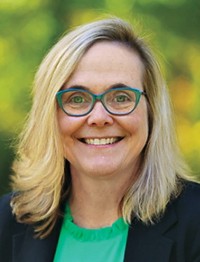Advertisement
Grab your lab coat. Let's get started
Welcome!
Welcome!
Create an account below to get 6 C&EN articles per month, receive newsletters and more - all free.
It seems this is your first time logging in online. Please enter the following information to continue.
As an ACS member you automatically get access to this site. All we need is few more details to create your reading experience.
Not you? Sign in with a different account.
Not you? Sign in with a different account.
ERROR 1
ERROR 1
ERROR 2
ERROR 2
ERROR 2
ERROR 2
ERROR 2
Password and Confirm password must match.
If you have an ACS member number, please enter it here so we can link this account to your membership. (optional)
ERROR 2
ACS values your privacy. By submitting your information, you are gaining access to C&EN and subscribing to our weekly newsletter. We use the information you provide to make your reading experience better, and we will never sell your data to third party members.
Policy
Network FAQs And Glossary
(as of Dec. 1, 2009)
December 7, 2009
| A version of this story appeared in
Volume 87, Issue 49
The ACS Network is open for all to read. Log-in via an ACS ID is required to view profile information, to add content, or to comment. Anyone can sign up for an ACS ID at www.acs.org.
Discussion threads
- Questions can be asked and answered by community members.
- Community members can monitor and participate via e-mail and e-mail-enabled mobile devices.
- Photos, videos, and HTML snippets can be embedded.
Documents
- Documents can be online (wiki), and/or video, PDF, Microsoft Word, Excel, PowerPoint, and other file types.
- The document owner can decide who may collaborate on a document and whether approval is required before publishing.
- Versions of documents are saved, and a side-by-side comparison between various versions of wiki documents can be done online.
Collaboration
Members can collaborate with specific users, or for specific purposes, in groups, or they can cast a wider net and interact more broadly with others who share similar interests and challenges in forums.
Forums
- Spaces created around broad topics for broad participation.
Groups
- Gatherings for a purpose that is more narrowly defined than that of a forum. Members might be interested in a specific topic, have a specific purpose, or a task to complete.
- Users may create a group.
- Groups have a configurable home page that can include discussions, blogs, wikis, documents, versions, etc.
- The owners of a group can restrict access in three ways and can approve others for membership in the groups that require approval. <ul> <li>Secret group: No one can access or even see that this group exists unless they are a member of the group.
- Private: User must be a member of the group to see the content. Everyone can see that this group exists in the list of groups.
- Member: User must be a member of this group to participate. The content is open for others to see without being a member.
- Open: Anyone can see and participate in content creation.
- Users can subscribe to e-mail alerts for a group.
- The owner of a group can change the access.
- Others inside and outside the ACS Network can be invited to a group.
Advertisement
My Network
Users can invite other users into “Your network” and, after they accept, see their e-mail addresses.
Profiles and Directory of Members
Users can create a profile that highlights their expertise and experience and promotes their accomplishments. Basic directory information will include name, location, division, and local section membership.



Join the conversation
Contact the reporter
Submit a Letter to the Editor for publication
Engage with us on Twitter